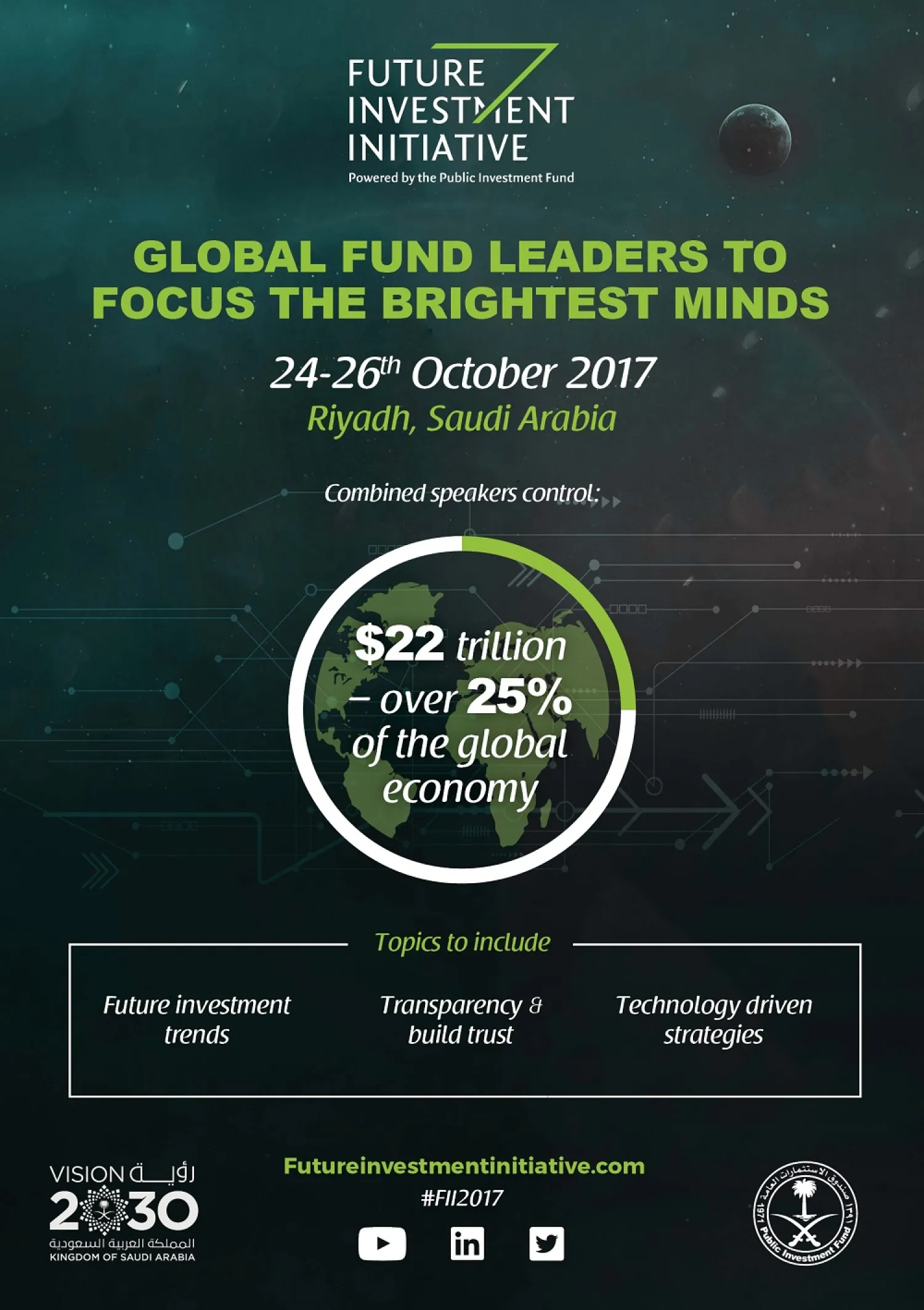Saudi Arabia’s Public Investment Fund (PIF), one of the world’s most important sovereign wealth funds, said that prominent speakers from the investment sector have confirmed tat they will be attending the "Future Investment Initiative.”
Held in Riyadh, throughout October 24-26, the PIF-organized Future Investment Initiative is a pioneering new global investment event that will connect the world’s most powerful investors, business leaders, thought leaders and public officials with groundbreaking innovations defining the future.
According to a Future Investment Initiative press release, major asset managers such as Colony NorthStar Executive Chairman Thomas Barrack, Apollo Global Management Chairman and CEO Leon Black, First Eastern Investment Group Chairman and CEO Victor Chu, and BlackRock Chairman and CEO Larry Fink were among the confirmed speakers.
It is estimated that the speakers at Future Investment Initiative control a combined asset value of $22 trillion.
Over the past five years, sovereign wealth funds have significantly increased their exposure to emerging markets, while at the same time moving away from investment in foreign government bonds. While this partly reflects geopolitical instability, it is also a recognition that high yield returns are more readily available in the private sector.
Alternatively, unlisted and private investment portfolios, often in emerging technologies, are becoming increasingly popular with managers. The growth of funds in the Middle East and Asia enables managers from these regions to increasingly drive the global investment agenda.
The highly collaborative and interactive program has been carefully structured to allow investment leaders to discuss a range of topics pertinent to the current and future trends.
The program will also explore how investors can reconcile the demands to consider the environmental, social and governance benefits alongside the traditional returns drivers. Another key focus area will be how to meet transparency requirements and actively build trust with public constituents. Participants will also gain insights directly from global sovereign wealth fund leaders on how they can adapt to new technology driven strategies.
The investment themes have been developed through three key content pillars: Shifting centers of power; the new investment paradigm; and innovation for a better world.
The Future Investment Initiative will be hosted under the patronage of Custodian of the Two Holy Mosques King Salman bin Abdulaziz, and under the leadership of Crown Prince Mohammed bin Salman, who is also the Chairman of PIF’s board.
Asset managers speaking at the Future Investment Initiative will be joined by speakers represent a range of sovereign wealth funds and pension funds including: Russian Direct Investment Fund CEO Kirill Dmitriev and Khazanah Nasional Berhad Malaysia Director and CEO Azman Mokhtar.
Leading GCC sovereign wealth funds will also be represented.









